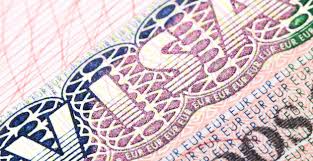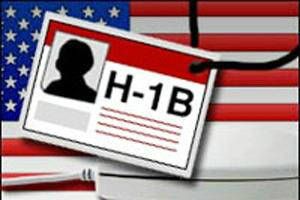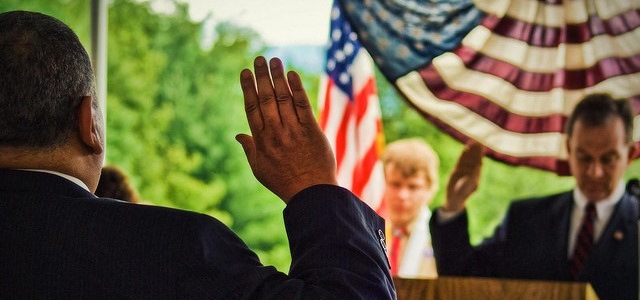Immigration News & Updates eNewsletter
eNewsletter
POSTING DATE: APRIL 11, 2016
Learn More About:
Immigration News & Updates eNewsletter © 2011 - 2016
For questions about U.S. Residency, Green Cards and Immigration Visas, Visit our Website at: www.ImmigrateToday.com or call our office at: (954) 382-5378
Check Out This Cool Stuff For Immigrants....
Immigration
Questions & Answers
Question: I am a U.S. Citizen and getting married, and my sister applied for a visa to come for my wedding in June. She just got denied yesterday for something called 214 B. Can you please tell me what does that mean? Can she reapply?
Answer: A visa denial under section 214(b) is one of the most common types of visa denials, normally based upon the Consular Officer’s belief that the applicant has the “intent to immigrate” to the U.S. 214(b) denials are usually issued when a foreign national is not able to convince the Consular Officer that he or she has “Strong Ties” to their home country which would likely compel the applicant to return home at the end of their visit and not stay in the U.S..
Demonstration of “Strong Ties” includes documents which prove that the applicant is employed, owns a home or other real estate and has close family members who reside in the home country.
Most foreign nationals mistakenly believe that the fact that they have family in the U.S. will work in their favor when applying for a U.S. Visitor Visa (B1/B2). However, contrary to belief, close relatives in the U.S. such as U.S. Citizen or Resident parents, spouses or children can have a very negative impact on an application, since the mere presence of such relatives in the U.S. tends to show that an applicant might be more prone to want to stay in the U.S..
In your sister’s case, it’s hard to know exactly why she was denied, since I don’t know if she is employed or has property titled in her name and significant funds in her bank account in her home country to show that she intends to return there once her temporary visit in the U.S. has ended. Unfortunately your sister will not be able to make it to the U.S. for your wedding. The best thing in the future is for her to wait 6 months then reapply again, this time providing extensive documents which would establish that she does intend to return home.
You can visit the State Department Website for information on the most common visa denial types:
This Week's Immigration News
New U.S. Policy Requires Travelers From Visa Waiver Countries To Have E-Passports
Under a new law recently passed by Congress, travelers from all 38 Visa Waiver Program Countries must have either an electronic passport, or e-Passport beginning April 1, 2016.
Visa Waiver Country nationals generally are not required to apply for U.S. Visas and are instead allowed to enter the U.S. for 90 days using their passport only, after applying through the Electronic System for Travel Authorization (ESTA).
USCIS Announces Cap Reached For This Year’s H-1B Visa Application Period
Feds Set Up Fake University To Catch Foreign Students in F-1 Visa Sting
In an effort to crack down on so called “Pay-to-Stay” college and university schemes, which allow foreign students to stay in the U.S. on an F-1 Student Visa without actually attending school, Federal agents actually created a fake university in order to lure prospective students into applying for visas to attend the phony school.
As a result, some 21 brokers, recruiters, and employers nationwide were arrested in the sting. The thousand or so foreign students who applied for visas to the college have not yet been arrested, but are likely to be contacted by U.S. Immigration and Custom's Enforcement's (ICE) officials and may be subject to removal.
On Thursday, April 7th, the USCIS announced that it had received an excess number of new H-1B application for the 65,000 regular Cap and 20,000 Masters Cap. The USCIS will conduct a random lottery to select applications from the thousands received. The first such randomly selected are 20,000 for foreign nationals who have U.S. Masters or above degrees, then 65,000 for all other applications.
Applications which are not selected will be rejected and returned to the applicants along with all filing fees.
Visit the USCIS H-1B Cap webpage:
Operated from New Jersey as the University of Northern New Jersey (UNNJ), recruiters for the school sought out international students both in the U.S. and abroad to attend the phony school. The UNNJ was not staffed with instructors, had no curriculum, and conducted no actual classes or education activities. Agents say that all prospective students were told that they would not have to attend any actual courses, earn actual credits, or make academic progress toward an actual degree in a particular field of study. Instead, false student records, including transcripts, attendance records, and diplomas, could be purchased by the foreign student to demonstrate fulfillment of academic requirements. And in yet another scheme, recruiters used the fake university to apply for work authorization and work visas for students, H1-B visas and even labor certifications for immigrant visas.
Read more about the fake university:
An electronic or e-Passport contains an electronic chip that holds a passenger's name, date of birth, and other biographical information, so it is more secure and less open to tampering than a regular passport. Travelers who do not have an e-Passport from a Visa Waiver country must now obtain a visa to come to the United States.
Upcoming Naturalization Ceremonies Announced
The USCIS has announced upcoming Naturalization Swearing-in ceremonies for several USCIS Field Offices in South Florida:
Miami Field Office – April 15, 22, and 29
Hialeah Field Office – April 16 and 30
Kendall Field Office – April,15, 22, and 29
Oakland Park Field Office – April 22 and 29
Question: I have been a Resident for 4 years and a half and I want to get may citizenship so I can vote in this years elections. I know I can get my citizenship after I have been a resident for 4 years and nine months. My question is can I apply now, early so that as long as I have been a resident by that time as of the time of the interview I still qualify.
Answer: A No, you must wait until you have been a Resident for at least 4 years and 9 months. Otherwise, if you apply even one day early, your application will be denied and you could lose your USCIS filing fees.
Helpful Immigration Hints You Can Use
USCIS Immigration Application Filing Tips
The USCIS recently issued a reminder for Applicants and Petitioners to include an Apartment Number with the address on the forms, according to its requirements. Each year hundreds of packages, notices and even Green Cards to Applicants by the USCIS are returned as undeliverable.
Frequently, this is due to the fact that the Applicant or Petitioner did not include the apartment number correctly on the forms. And of course, you should always keep your address up-to-date and file a change of address within 30 days of moving to a new location. You can get more filing tips and make your address change online by clicking on the link below:
Immigration How To:
How Do I Replace A Lost I-94 Card?
An I-94 is a small slip of paper which was, until recently issued to all international visitors and visa holders entering the U.S.. Officially called the Arrival/Departure card, the I-94 contained the date of entry into the U.S. as well as the date by which the individual must depart from the U.S.. Often, individuals do not understand how important this little card is until it is too late.
In order to change immigration status inside the U.S. to any other immigrant or non-immigrant visa status, immigration regulations require that a copy of the I-94 be included with the application to establish eligibility.
Foreign nationals must prove that they entered the U.S. legally and were inspected by an immigration officer in order to qualify to file for immigration status in the U.S.. Those who did not enter the U.S. legally are generally not entitled to obtain any new immigration status in the U.S., even when married to a U.S. citizen unless a Waiver is obtained.
If your I-94 card is lost, stolen or seriously damaged, you can apply to replace it by filing Form I-102, Application for Replacement/Initial Arrival-Departure Document. You also may file Form I-102 if you wish to receive a replacement I-94 card with corrected information on it — for example, if the immigration officer spelled your name wrong on the initial I-94 card. The nonrefundable filing fee for Form I-102 is $320. It generally takes about 60 days to receive the I-94 replacement card in the mail.
Under the new electronic I-94 system implemented in 2013, international visitors are no longer issued paper I-94 cards upon entry into the U.S.. Instead, individuals are provided with instructions on accessing their I-94 records online and printing the I-94 card out from the U.S. Customs and Border Protection (CBP) agency. You can visit the CBP site to print out your paper I-94 cards:













